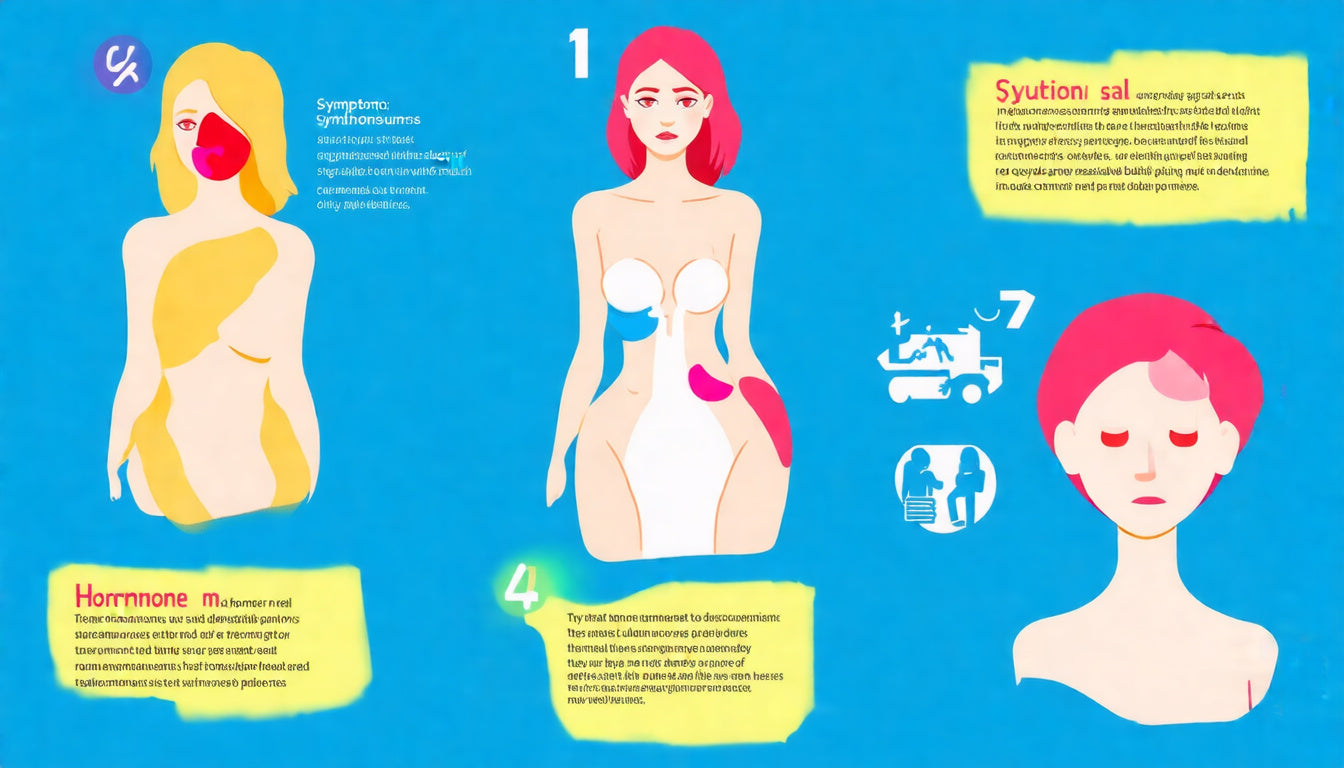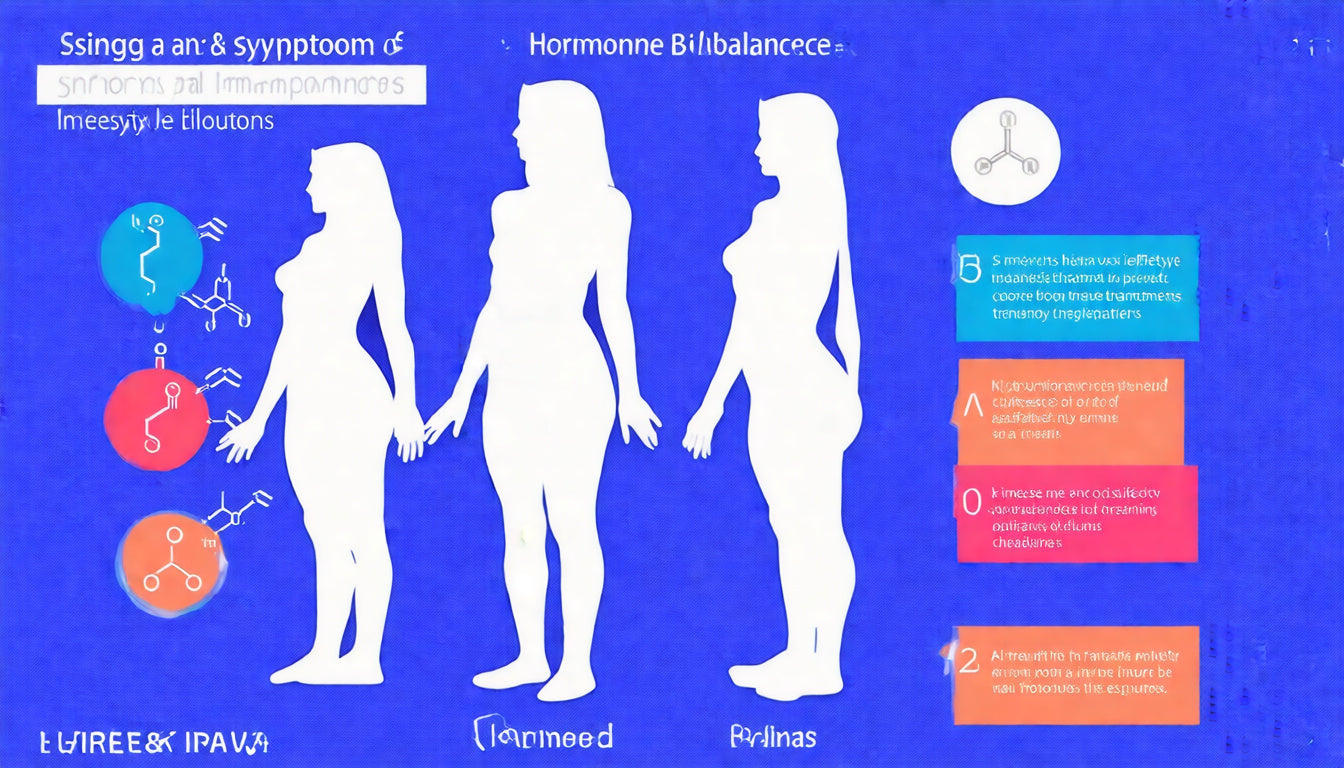
Identifying Hormonal Imbalances: Signs, Symptoms, and Solutions
Hormonal imbalances can significantly affect overall health, influencing everything from mood to metabolism. Recognizing the signs early can help address these imbalances effectively and improve quality of life. This article delves into the common signs and symptoms of hormonal imbalances, explores potential causes, and offers practical solutions for restoring balance.
What Are Hormonal Imbalances?
Hormones are chemical messengers produced by glands in the endocrine system. They regulate vital body functions such as growth, metabolism, reproduction, and mood. A hormonal imbalance occurs when these hormones are produced in excess or insufficient amounts, disrupting the body's normal functioning.
Common Signs and Symptoms of Hormonal Imbalances
Identifying hormonal imbalances can be challenging because symptoms often overlap with other health issues. However, several key signs suggest that hormones may be out of sync:
1. Unexplained Weight Changes
Sudden weight gain or loss without significant changes in diet or activity levels may indicate hormonal shifts, including thyroid dysfunction or insulin resistance.
2. Fatigue and Low Energy
Persistent tiredness, despite adequate sleep, can result from imbalanced cortisol, thyroid hormones, or sex hormones.
3. Mood Swings and Anxiety
Fluctuations in estrogen, progesterone, or testosterone levels often lead to irritability, depression, or anxiety.
4. Irregular Menstrual Cycles or Fertility Issues
Changes in menstrual patterns, heavy bleeding, or difficulty conceiving are common signs of reproductive hormone imbalances.
5. Hair Loss and Skin Changes
Thinning hair, hair loss, acne, or dry skin can signal shifts in hormone levels, impacting the health and appearance of skin and hair.
6. Sleep Disturbances
Insomnia or poor-quality sleep is frequently linked to imbalanced melatonin or cortisol levels.
7. Digestive Problems
Hormones influence digestion, and imbalances can cause bloating, constipation, or other gastrointestinal issues.
Common Causes of Hormonal Imbalances
Several factors can contribute to hormonal imbalances, including:
- Stress: Chronic stress elevates cortisol, disrupting other hormone production.
- Poor Diet: Nutritional deficiencies can impair hormone synthesis.
- Environmental Toxins: Exposure to endocrine disruptors affects hormone receptors.
- Medical Conditions: Disorders like thyroid disease, diabetes, and PCOS affect hormone levels.
- Aging: Natural hormonal changes occur with age, such as menopause.
Solutions for Restoring Hormonal Balance
Lifestyle Modifications
- Balanced Nutrition: Eat whole foods rich in healthy fats, proteins, and complex carbohydrates to support hormone production.
- Regular Exercise: Physical activity helps regulate insulin and cortisol.
- Stress Management: Techniques like meditation, yoga, and adequate sleep lower cortisol levels.
Medical Interventions
- Hormone Therapy: Under medical supervision, hormone replacement can correct specific deficiencies.
- Medications: Treat underlying conditions impacting hormone levels.
Natural Supplements
Certain supplements support hormone health, including vitamin D, magnesium, and adaptogenic herbs like ashwagandha.
Caring for Hair and Skin Health
Since hormonal imbalances often affect hair and skin, incorporating specialized hair products can help mitigate symptoms like hair thinning and hair loss. Choosing products designed to support scalp health and strengthen hair follicles is essential.
For effective solutions tailored to hair affected by hormonal changes, consider exploring reputable hair care products that address hair loss and promote healthy hair growth. Watermans offers a range of products formulated to support scalp and hair vitality, helping counteract the impact of hormonal imbalances.
When to See a Healthcare Professional
If you experience persistent symptoms suggestive of hormonal imbalance, consulting with a healthcare provider is crucial for proper diagnosis and treatment. Blood tests and other evaluations may be necessary to pinpoint specific hormone issues.
Conclusion
Hormonal imbalances affect multiple aspects of health but recognizing the signs early can lead to timely interventions. By adopting a healthy lifestyle, seeking medical advice, and utilizing supportive hair care products, you can restore balance and enhance overall well-being. For those experiencing hair-related symptoms, integrating specialized products like those from Watermans can be a valuable part of your self-care routine.













